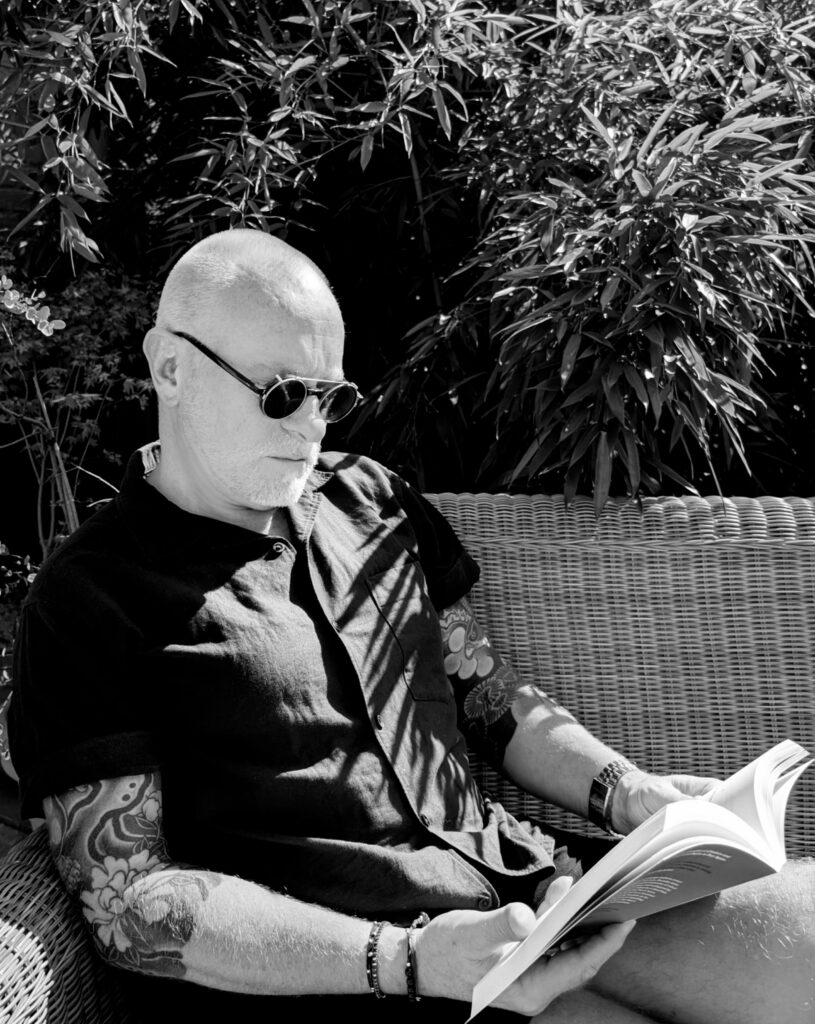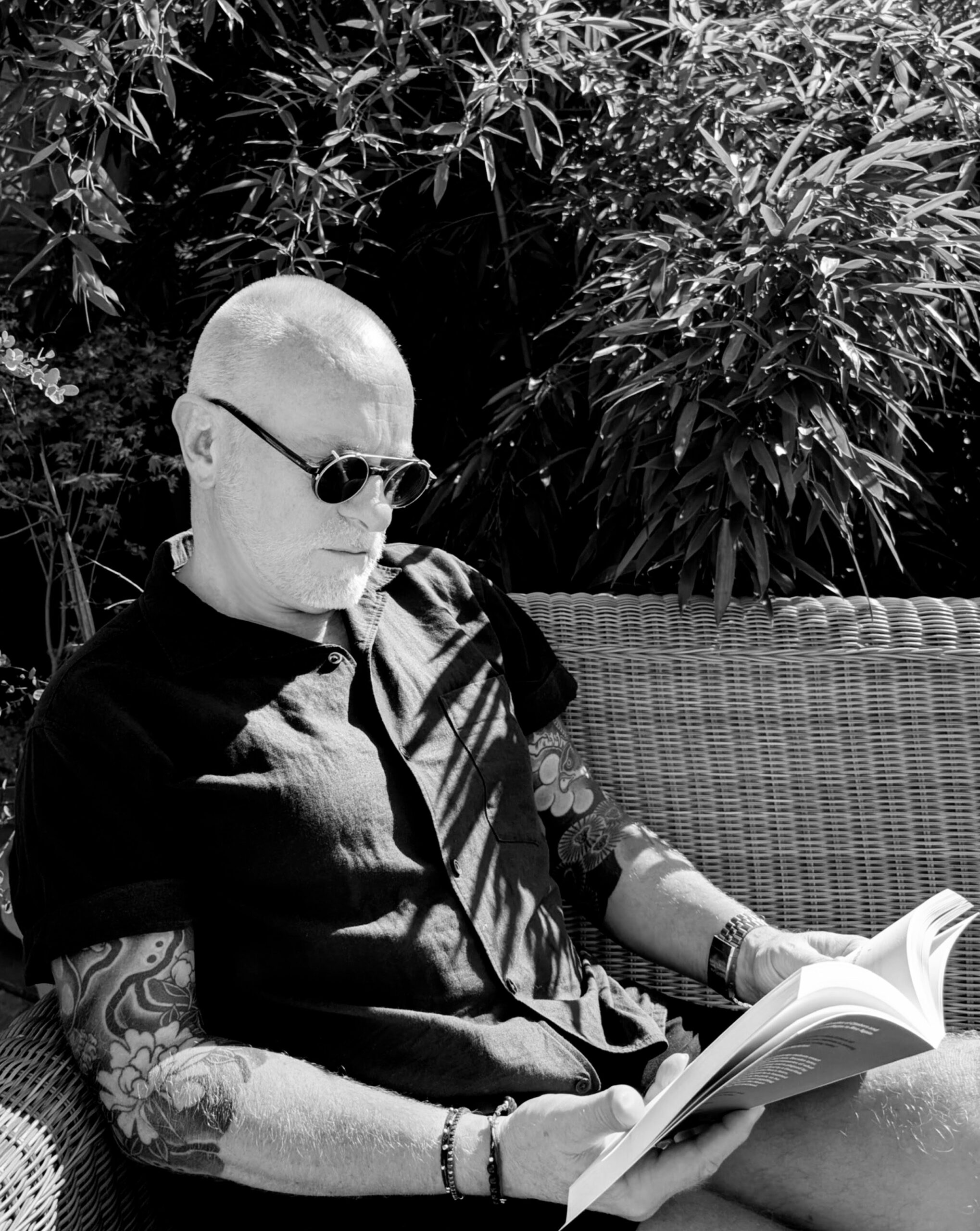
On ocassion of his new release on aufabwegen we have sent Paul Schütze five questions via email. Here is the transcript of our little conversation.
1.) Your previous release for aufabwegen saw the revisiting of archive material, resulting in an almost proggy, strong instrumental atmosphere. Your new release, The Mosaic Of Starlight Slips Back Like The Lid Of An Opening Eye, is a long piece of abstract electronic sound layers with very subtle dynamics, that spreads in 2 parts over 2 discs. Can you tell us a bit about the piece? How did it manifest itself? What was the idea for the title? Can you introduce your collaborator Daniel Pennie to us? The cover images show details of a project called The Garden of Instruments – what is the project and how is this music related to this project?
The title of this new work is taken from the spoken libretto of Second Site. The libretto is divided into strictly formal descriptive sentences that depict the structures of the garden (directly influenced by the writings of Alain Robbe Grillet) and the poetic observations of an imagined visitor. The title sentence is from the second group.
I wanted to revisit and expand upon the world conjured by the poetic observer and to place the listener in the material and emotional flux of the Jantar Manta’s incredibly sensual universe.
The most interesting thing about these buildings is that their forms are dictated entirely by the cosmos they are engineered to observe.
The cover images are virtual photographs taken within the rendered world depicting the Delhi Jantar Mantar. It sits on a plane of volcanic black glass and is made entirely of rock crystal. These materials help to visualise the structure’s complexity and functional transparency to the heavens.
I was lucky enough to work with guitarist Daniel Pennie again on this project.
His own projects, Mad Band and Noise in your Eye vividly showcase his skills both as a player and as a composer in his own right.
He brings a wealth of experience and a sculptural sensuality to his playing. It feels as though the longer I leave the constituent parts of these mixes to sit with one another, the more thoroughly each leavens and transforms the others. Every successive playback reveals some unexpected organic extrapolation that has occurred overnight.
2.) Can you give a little insight into your artistic practice? You work in a number of disciplines, ranging from sound/music to photography and even perfume design. How do these disciplines come together for you? what is the common thread or rather, how do these forms feed on each other?
I have written a lot on the connections across modalities that reveal themselves while working in different mediums. The surprising thing is how similar the guiding principals turn out to be, regardless of what materials one uses. As I’m self-taught in the practices I’ve developed, I guess i didn’t have to unlearn any bad habits. Each time I start out with new materials I quickly learn that the same rules apply and the same mistakes result in failure. Always be led my the material, whether that is sound, light or aroma. Your own intentions will emerge regardless but if you fight the materials you will always loose. Let them have their head and listen when they object or struggle. If you treat a sound as a collaborator it will show the love.
I feel as though all the work I do is part of the same project. I often reach for a smell (pink pepper) when I need a sound (ride cymbals) and vice versa. They behave in strikingly similar ways.
3.) How do you make music? What is the process like? Do you start from an idea or theme that is extra-musical and try to put it into tones or do the final pieces evolve out of experimenting in the studio? Or is it completely different?
i usually start by needing to hear something that I cant find in my collection, a mood, a sensation, and then I start auditioning sounds. I find the sound that will act as a seed for the overall feel and then I just place it in a space where it can do its thing with the least interference from me.
I like sounds to feel as autonomous as possible.
If it wants company, I offer it various companion sounds and sonic locations until it’s happy. We just move on from there till everything feels complete. Or gloriously incomplete.
4.) There is still considerable interest in your earlier works with Laughing Hands and solo – how do you look back on your artistic development?
I’m not really wired for retrospect so I’m generally baffled by the interest in older work, even though its very flattering.
I rarely listen to it, although the recent spate of reissues has meant I had to spend quite a lot of time swimming thought old releases and thinking about remastering etc.
Music is a very effective vessel for the transport of persona so listening to old work can be like meeting yourself in limbo. A conversation with an earlier you.
It’s been interesting as I did find, buried in some very old pieces, several perfect solutions for musical problems I was currently trying to solve. Turns out I knew how to do these things decades ago, effortlessly. It felt like I’d sent them forward to myself from thirty or forty years back. Cryptic gifts designed to make me realise just how circular, time in art is.
5.) You rarely perform live in recent years. Is this something you want to change or has it to do with your music being difficult to play live or what could be the reasons?
Sadly this is true. I really miss playing live. Obviously Covid ruptured the continuity of live playing and, certainly in the UK Brexit has had a catastrophic impact on the once thriving exchange of performers between the UK and Europe. I’m very much hoping we can find ways to resume performances as Daniel and I are keen to do some duets after the last series of releases.
Photo credit: Paul Schütze.
Questions: Till Kniola
The Mosaic Of Starlight Slips Back Like The Lid Of An Opening Eye release page
